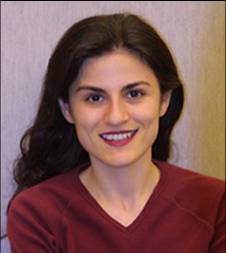System Maintenance occurs every Friday.
Semiconductor and electronics developments continue to proceed at an incredible pace. For example, today's microprocessor chips have one thousand times the processing power of those a decade ago. These challenges have been accomplished because of the integrated circuit industry's ability to track something known as Moore's Law. Moore's Law states that an integrated circuit's processing power will double every two years. This has been accomplished by making devices smaller and smaller.
The industry is also pushing to use semiconductor devices in an increasing array of applications. Many of these applications involve a combination of analog and digital signals that drive actuators, read sensors, and convert these signals into digital data. These applications may also involve wireless signals that transfer data at RF frequencies. To accomplish this, the industry is using an ever-increasing array of mixed-signal components. This has created a number of challenges related to the testing of these components and systems. RF and Mixed-Signal Testing is an 8-hour webinar that offers detailed instruction on the testing of semiconductor components and electronic circuit boards. We place special emphasis on fault models, test techniques, and signal generation. This course is a must for every manager, engineer, and technician working in mixed-signal semiconductor test, testing circuits in high performance electronic systems, testing printed circuit boards, or supplying test hardware and software tools to the industry.
By focusing on the fundamentals of mixed-signal testing, participants will learn how test programs are designed, written, and implemented. Our instructors work hard to explain semiconductor test without delving heavily into the complex algorithms and computer science that normally accompany this discipline.
$995
Add To Shopping Cart
If you have any questions concerning this course, please contact us at info@semitracks.com.
If a course is canceled, refunds are limited to course registration fees. Registration within 21 days of the course is subject to $100 surcharge.
Participants learn basic but powerful aspects about the mixed-signal semiconductor and electronics testing. This skill-building series is divided into four segments:
By using a combination of instruction by lecture, classroom exercises, and question/answer sessions, participants will learn practical information on mixed-signal semiconductor and electronic systems testing. From the very first moments of the seminar until the last sentence of the training, the driving instructional factor is application. Our instructors are internationally recognized experts in their fields and have years of both current and relevant experience.

Dr. Sule Ozev received her B.S. degree in Electrical Engineering from Bogazici University, Turkey, and her M.S. and Ph.D. degrees in Computer Science and Engineering from University of California, San Diego in 1995, 1998, and 2002 respectively. Dr. Ozev is an assistant professor at the Electrical and Computer Engineering Department at Duke University. She is the Program Chair of IEEE North Atlantic Test Workshop (NATW) for 2005 and 2006 and the General Chair of NATW for 2007. She serves on various program committees, including IEEE International Conference on Computer-Aided Design (2005-2006), IEEE International Conference on Computer Design (2004-2006), IEEE European Test Symposium (2006-2007), and IEEE International Symposium on Defect and Fault Tolerance (2005-2006).